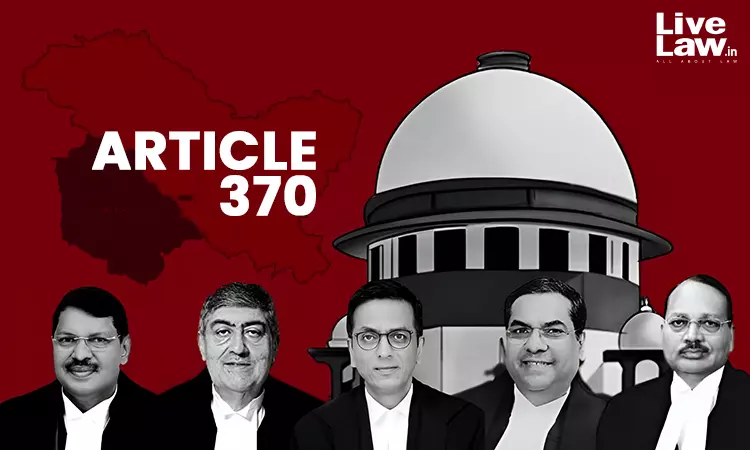
Image Source: livelaw.in
The Supreme Court's recent decision upholding the abolishment of Jammu and Kashmir's special status under Article 370 of the Indian Constitution has sparked significant debates and discussions across the nation. The historic move, initiated in August 2019, revoked the special autonomy granted to the region for over seven decades.
From a UPSC (Union Public Service Commission) perspective, this decision holds paramount importance due to its implications on India's federal structure, governance, and constitutional matters. Aspirants preparing for the Civil Services Examination need to comprehend the intricacies of this decision and its wider ramifications.
Background
Jammu and Kashmir's special status was entrenched in Article 370, providing the region with considerable autonomy in matters except defense, communications, and foreign affairs. The government's decision to revoke this status aimed to integrate the region more closely with the rest of India, enabling uniform application of laws and policies.
Legal Challenges and Supreme Court's Verdict
Several legal challenges were raised against the abolishment, asserting its constitutional validity. The Supreme Court, after meticulous deliberation, upheld the government's decision, stating that Article 370 was a temporary provision and not a permanent fixture in the Constitution. The Court emphasized that the President's power to modify or revoke the special status was in accordance with the Constitution.
Implications
The verdict has far-reaching implications for Jammu and Kashmir's governance, security, and socio-political landscape. It has opened avenues for the extension of central laws, welfare schemes, and developmental projects to the region, aiming to foster inclusivity and accelerate progress.
UPSC Relevance
For UPSC aspirants, understanding the constitutional, political, and socio-economic dimensions of this decision is crucial. It underscores the significance of knowing India's constitutional provisions, the nuances of federalism, administrative reforms, and the complexities of regional integration.
Conclusion
The Supreme Court's decision to uphold the abolishment of Jammu and Kashmir's special status marks a pivotal moment in India's constitutional history. This move seeks to facilitate equitable development and strengthen the nation's unity and integrity. For UPSC aspirants, analyzing such landmark judgments is indispensable for comprehensive preparation and understanding the evolving dynamics of Indian governance.